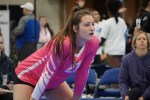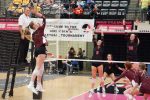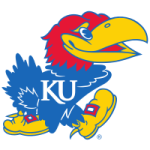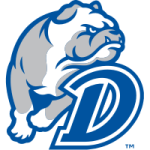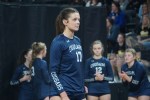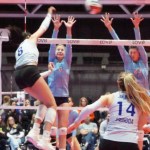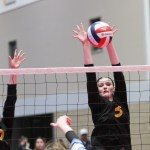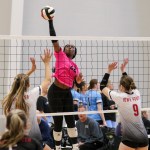6 Tips to Staying Healthy and Focused During Preseason
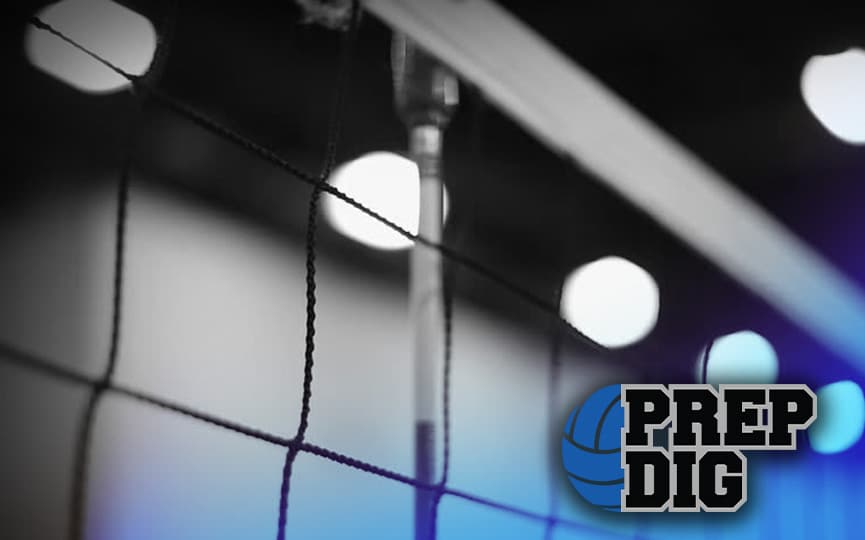

Fall is right around the corner and that means the start of our favorite season: volleyball! As athletes, we look forward to reuniting with old and meeting our new teammates to play the game we love. However, our bodies dread…
Access all of Prep Dig
Continue reading this article and more.
Continue ReadingFall is right around the corner and that means the start of our favorite season: volleyball! As athletes, we look forward to reuniting with old and meeting our new teammates to play the game we love. However, our bodies dread preseason workouts as the strain of rotating from practice to lifting to practice for several days in a row causes soreness and fatigue. Here are tips to staying healthy and keeping your body and mind focused during preseason.
Stay hydrated
One of the most essential parts of being an athlete is keeping your body fueled with plenty of fluids. Not only does it prevent you from becoming dehydrated, but also combats muscle damage by preventing muscle linings from sticking together, causing muscle cramps and tightness. Competing at your best means keeping your body healthy, so make sure you are drinking a glass of water as soon as you wake up, prior to practice, during practice, after practice, and before going to bed to hydrate your muscles. Try avoiding sugary drinks that will dehydrate your body.
Treat your body with a balanced diet
Eat better, play better. Your workout can only help you become stronger and faster if you nourish your body properly. It is important to get plenty of carbohydrates, fats, and proteins. Depriving your body of these key macronutrients will restrict you from competing at your highest potential. Nutrition is important both before and after you exercise. Prior to a workout, your body needs a healthy balance of carbohydrates and protein to fuel and give it long-lasting energy. Great pre-workout snacks include protein shakes, chicken, Greek yogurt, eggs, and bananas. After a workout, it is important to replenish your body with fats, proteins, and carbohydrates. Great post-workout snacks include peanut butter, tuna, whole wheat bread sandwiches, hummus, chocolate milk, and nuts. As an athlete, eating at least three meals a day is essential for the amount of energy burned during workouts, so make sure you are eating a quality breakfast, lunch, and dinner daily!
Visualization
We hear Olympic and professional athletes use this all the time, but what is it? Visualization is the act of creating a mental image or intention of what you want to happen in reality. Athletes use this as a technique to train themselves to combat negative thoughts and enter a positive mindset heading into an athletic competition. This allows athletes to release any nervousness and anxiety and enter a relaxed and calm well-being. This can be as simple as imagining that perfect ace or perfect set and replaying that moment over in your mind as you prepare for a long day of practices. Mental training is as beneficial as physical training and can help keep you focused, so give visualization a try prior to practice or before bed!
Stretch/Cool down after training sessions
Cooling down after a practice is so important for athletes because stretching keeps the muscles flexible, strong, and healthy. This flexibility allows for a broader range of motion in joints, preventing injury to muscles as they shorten and become tight, which can lead to joint damage if the muscle is not able to support the joint. Another way to cool down is to roll out muscles using a foam roller, trigger point roller, or lacrosse ball. Rolling out before and after practice can help to eliminate muscles adhering together and increases blood flow to help with recovery and boost performance. Stretch before and after workouts to prevent injury!
Treat your injuries immediately
If you have a pain that is irritating you, address it immediately with a coach or trainer. Do not wait until it has progressed to the point where it is unbearable and affects your play. Many injuries have very simple treatments such as ice or compression if caught early, but become more complex to treat as the symptoms progress. If you have a muscle cramp or tightness, notify someone who can help and take the necessary steps to getting your body back on track so you are ready and healthy for season.
Sleep
During preseason, your body will be burning more energy than it is used to, so be sure to get plenty of sleep during this phase of the season. Sleep allows our bodies and minds to reset. A quality night of uninterrupted sleep is essential to competing athletes who train on a daily basis to reduce fatigue, illness, and stress; all elements that will prevent you from competing at your best.
Follow these simple steps during preseason and your body will thank you! Not only will you feel better, but you will perform better, preparing you and your team for a successful season!
